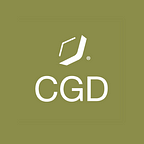Rare Plants Partnership Unlocks Nutritional Value Of Forgotten Plants: First Field Trials Underway In Morocco
Originally published July 2017.
In the clay soil of a creek bed in the arid foothills of Morocco’s Atlas Mountain range, a little-known wild species of oats is thriving, as it has for centuries. While some of the region’s native mammalian species have long since gone extinct, Avena magna, a native, protein-rich ancestor of oats has survived. And now, with the help of a partnership between Context Global Development® (CGD) and General Mills, this and other nutritious plants will soon find their way into the fields and onto the plates of people in the world’s poorest and hungriest countries.
CGD partnered with General Mills in November 2016 to introduce the Rare Plants Partnership (RPP), a public-private enterprise aimed at discovering, domesticating and reintroducing forgotten, high-nutrient plants to address malnutrition in the poorest 80 countries of the world. “For centuries, agriculture has focused heavily on selecting and breeding crops for yield and performance related attributes — and with good reason. We have, perhaps, for no other reason than the limitations of the tools we’ve had available, overlooked or left behind varieties that held the potential for enhanced nutrition and meaningful human diet,” says Ray Shady, CGD Senior Program Manager. RPP seeks to intervene in the malnourishment/poverty cycle by implementing a system to rediscover and reintroduce unique and ancient plants, and by leveraging a unique combination of tools, team and mission, unlock the nutritional value of foods already cultivated and prepared in the developing world.
Rare Made Real
Inspired by the seminal work of Dr. Gideon Ladizinsky, a plant pioneer in the 1960s, and his own personal experiences working in Kenya, General Mills’ geneticist and systems biologist Eric Jackson made it his personal mission to apply his expertise and experience to making a difference in the lives of smallholder farmers in the developing world. Through years of personal effort, and later, with support from General Mills’ chief counsel of intellectual property, William Miller, Jackson successfully domesticated a Moroccan oat, Avena magna, retaining the plant’s original nutrient profile, with double the protein, iron and other vitamins compared to common oats, preparing the groundwork for what would become RPP.
With the nutrient-rich Moroccan oat lines and toolset to improve more crops in hand, the question remained of how best to deploy this highly nutritious oat to the people who need it. Recognizing CGD’s ongoing public- and private-sector work in the developing world, Jackson and Miller approached Context principal Mark Holland and CGD’s managing director Mark Nelson to envision what would become the foundation for RPP. “It was immediately clear that General Mills’ collection of rare plants could be very impactful in the developing world, and that CGD could provide the missing link. Our know-how and expertise in seed systems and specialty grain origination, starting at the small farmer level all the way through to the end user, will be the catalyst to the sustainable success of introducing and deploying these unique varieties,” says Nelson.
The goals of RPP are fourfold. First, the partnership will identify regions where people are already using specific crops (initially oats) in their everyday foods. Second, the partnership will facilitate field trials and interventions. Third, RPP will study local food systems and consumer preferences because eating behaviors are key to product adoption, and crops are a vital tool for delivering better food. Fourth, the partnership will help create localized economies for the crop. In time, the partnership intends to expand, drawing in other contributors of germplasm to enhance the breadth of species and broaden RPP’s geographic reach to smallholder farmers.
This April, RPP launched its initial efforts to deploy Moroccan oats in four countries, Morocco, Ethiopia, Nigeria, and Malawi. To date, growers outside of Rabat, Morocco, have planted four trial plots of 48 elite lines to see how these nutrient-rich oats perform in varied growing conditions. “To bring the domesticated Moroccan oat back to its country of origin and work with small farmers and families to build local economies and opportunities for the world is incredibly fulfilling from a cultural, scientific and personal perspective,” says GM’s Jackson.
To learn more about the Rare Plants Partnership initiative and partnership opportunities in Africa, please contact Mark Nelson, Managing Director at mark.nelson@contextnet.com.
Context Global Development (CGD) is a non-profit organization that leads agricultural and social impact programs worldwide. CGD teams with development organizations and government agencies to maximize the value of agricultural resources in developing countries as they partner to accelerate innovations that result in meaningful and lasting change.
